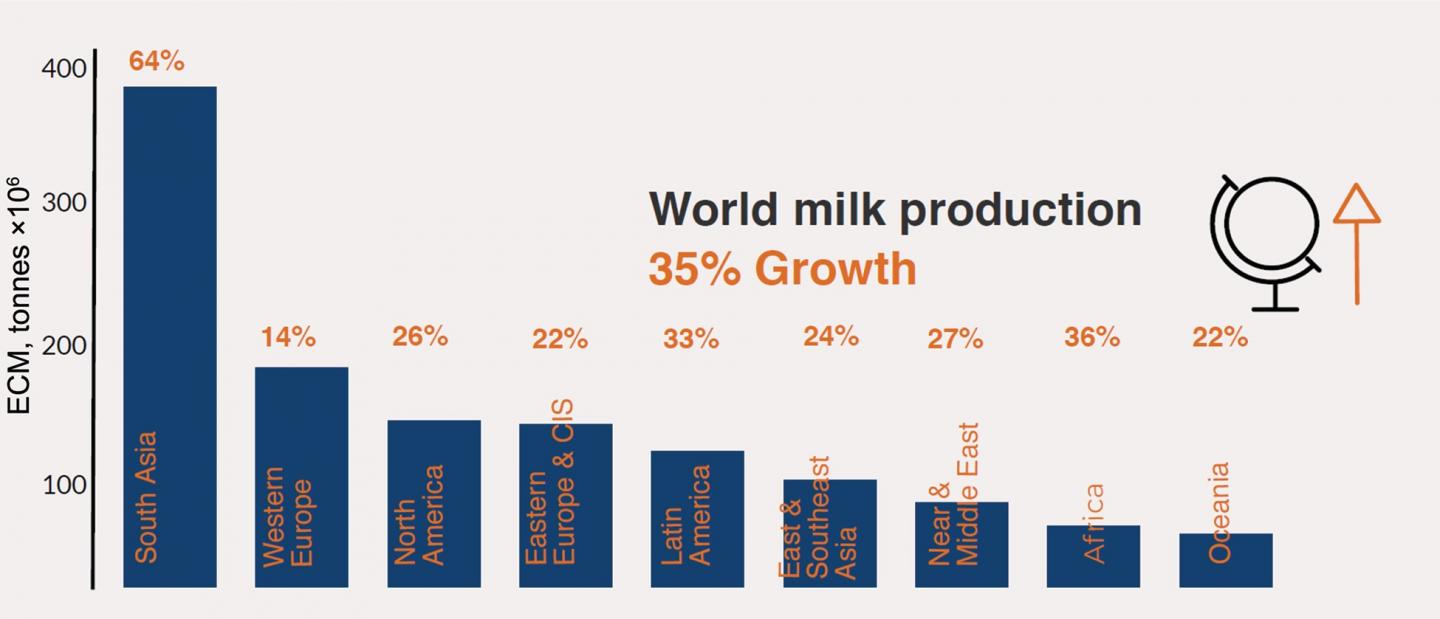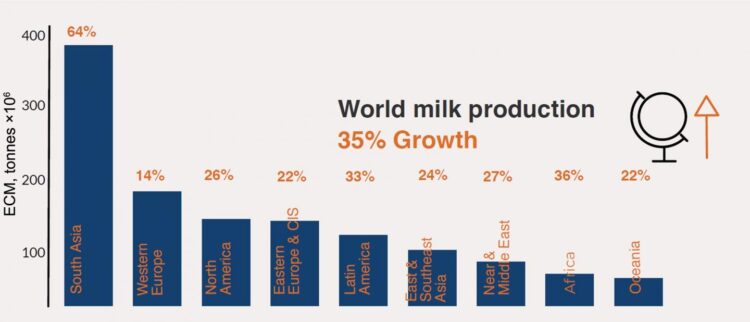Dairy production in developing countries highlighted in November issue of the Journal of Dairy Science®

Credit: Adesogan, A.T. and G.E. Dahl. 2020. MILK Symposium Introduction: Dairy production in developing countries. J. Dairy Sci. 103:9677-9680. https://doi.org/10.3168/jds.2020-18313.
Philadelphia, October 15, 2020 – Low dairy consumption is common among low- and middle-income countries (LMICs); however, with the demand for milk in these countries projected to increase over the next few decades, there is an opportunity to improve the lives of millions of people from the nutritional benefits of dairy products. Feed the Future Innovation Lab for Livestock Systems hosted the “MILK Symposium: Improving Milk Production, Quality, and Safety in Developing Countries” at the 2019 American Dairy Science Association® Annual Meeting to address factors that cause low dairy consumption in LMICs and discuss strategies to address them. The Journal of Dairy Science invited speakers to submit articles on topics from the symposium to reach a wider audience.
“Dairy consumption levels are low in LMICs due to low affordability, accessibility, and availability caused by inadequate feeding, management, and genetics; poor transport, cooling, and processing infrastructure; unconducive policy environments; and sociocultural and demographic factors,” explained Adegbola Adesogan, PhD, Director of the Feed the Future Innovation Lab for Livestock Systems at the University of Florida, Gainesville, FL, USA. “These papers collectively show how strategic interventions can lead to marked improvements in dairy production in developing countries.”
The symposium started by reviewing the importance of dairy foods in diets of infants, adolescents, pregnant women, adults, and the elderly. It provided current research evidence that dairy foods consumption does not lead to an increased risk of cardiovascular disease and type 2 diabetes; rather, dairy products offer an important supply of nutrition and functionality that are of particular importance at certain life stages.
Animal-source foods provide a high-quality and bioavailable source of protein and micronutrients that can help alleviate child undernutrition. In Nepal, children older than 60 months who consumed milk were taller and had higher weight for their age, and children 24 to 60 months had larger head circumferences, which is used as a measure of cognition.
The symposium highlighted the importance of resources and education to improve the quality and safety of milk in developing countries. It reviewed the causes of foodborne diseases from milk and the health and economic implications, followed by a discussion of educational and technological solutions to improve the quality and safety of milk production.
A technology training package to control mastitis was implemented successfully on dairy farms in Nepal with outcomes that suggested scaling the training across smallholder farms beyond Nepal. Training-of-trainers workshops based on needs assessments were developed in Rwanda and Nepal to help improve productivity, quality, and safety of milk. In southern Ethiopia, an intervention was designed to improve the hygiene and handling of milk that resulted in an overall increase in knowledge of best practices of the participants.
The final presenter emphasized the sustainability and environmental impact of dairy production in low-income countries. Sustainable intensification is an important strategy to address food security and climate change simultaneously. Improving genetic potential, balanced animal nutrition, and quality of feed are all promising strategies.
“The growing demand for dairy products in LMICs presents a tremendous opportunity,” Adesogan said. “These papers will ultimately contribute to meeting the growing global demand for milk and to achievement of the United Nations Sustainable Development Goals related to alleviation of hunger and poverty, improvement of education and employment, and environmental stewardship.”
###
The symposium papers are published as part of the November issue of the Journal of Dairy Science at http://www.journalofdairyscience.org/issue/S0022-0302(20)X0011-7.
Media Contact
Eileen Leahy
[email protected]
Related Journal Article
http://dx.





